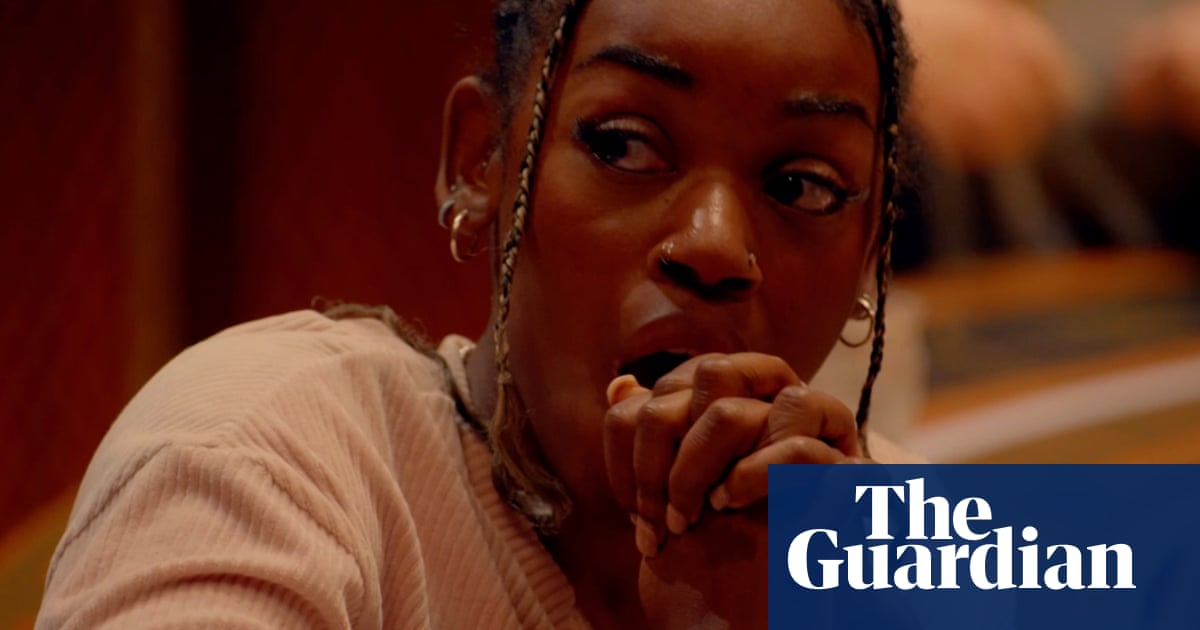
It feels sad, amid a wave of such positive, nuanced, complex depictions of immigrants on TV, that United States of Al had to launch this month in the US.
“How do you say: ‘We’re so happy to see you’ in … what language do they speak in Afghanistan? Afghanistanish?” is the first line of the new show, about an American war veteran whose Afghan friend, Al, comes to live with him in the US.
Chuck Lorre, the producer known for other big hits such as The Big Bang Theory, Roseanne and Two and a Half Men, knows that one of the country’s two native languages is Pashto, not “Afghanistanish” – it’s in the next line of the script – but what better way for a show to signify how irrelevant it thinks another country is than by inserting a joke for which the punchline is a question that could be answered by Google in a second?
The show is about a Muslim man and a US army veteran, but it was clearly written for people who identify with Parker Young as Riley – a hunky white man going through a divorce and dealing with alcohol issues – rather than those who identify with Al.
Perhaps we should have known when the main character’s name was shortened from Alwalmir to “Al”. And if that didn’t do it, it should have been clear that when the show cast a South African actor (Adhir Kalyan) of Indian descent with a fake accent for its Central Asian main character, it was written for people it was thought would not notice, or care about, the difference.
But it is also clear from the script that you are not supposed to find Al very interesting, let alone relatable. By episode four, it is easier to identify with peripheral characters such as Riley’s sister Lizzie (who is mourning the death of her husband), or his wife Vanessa than Al, whose entire backstory seems to be that he doesn’t drink or date, likes tea and comes from a country that can be compared to the Burning Man festival, where – the writers’ words, not mine – “people run around like crazy people, light everything on fire and then leave”.
Al is an unthreatening character, who is ever so grateful to be in the US. He doesn’t like to force his religious standards on other people; he gifts his friends rugs that have been handmade by his uncle, and compliments many American practices – such as how the bins have wheels here!
He is an interpreter who speaks several languages but nonetheless routinely messes up his grammar and cannot get phrases like “double standards” right; a man who haggles at the grocery store, as if there are no supermarkets in Afghanistan, and never knew before now that in the US, people stop at traffic lights.
In other words, he is the archetype of a “good immigrant”, whose sole purpose is to be the butt of all jokes and help the show’s white characters find happiness.
Lorre has past form on this – he did, after all, create The Big Bang Theory, whose only non-white central character is Rajesh Koothrappali, whose main character traits are his Indian accent and the way he can’t speak directly to women, and whose parents are always trying to get him an arranged marriage. And there is of course that small matter of the constant Indian jokes. “I made chicken. Now I hope that’s not one of the animals you people think is magic,” Sheldon Cooper’s mother says to Raj in one episode.
Compare this to some of the more exciting immigrant characters we have had on TV recently and you will see that such portrayals are as regressive as they are sloppy. In Golden Globe winner Ramy Youssef’s eponymous show Ramy, you see the way in which his parents navigate the pressures, cultural differences and contradictions of being immigrants in the US while raising American children. They are not model citizens: they make embarrassing mistakes, constantly insult the US and question its values (as is their American right), and you see that their morality is sometimes dubious, their motivations sometimes self-serving.
One episode, shown through the eyes of Ramy’s mother Maysa – whose first language is not English – takes a turn for the worse when she tries to get her head around they/them pronouns. After being suspended from her new job as a Lyft driver, Maysa is terrified the reprimand will affect her citizenship application, and realises she misgendered a passenger who may have reported her. It is hilarious and, yes, difficult. It shows the ridiculous requirement for non-citizens to know more about a country than its citizens (as if that is some measure of patriotism, or validation of one’s right to live freely without fear of deportation). It makes clear the daily toll that immigration processes take on people’s lives – the relentless code-switching and gratitude – and it also shows you that Maysa can be self-motivated, backward and parochial. Just like any other American.
In Pen15, writer Maya Erskine’s real-life mother, Matsuko Erskine, plays her mother on screen and defies the “strict Asian” stereotype often reserved for Asian mothers on TV, perhaps most perfectly captured in The Gilmore Girls, where best friend Lane Kim’s mother is the epitome of a terrifying “tiger mom”. By contrast, Erskine’s Emmy award-winning show about the awkward, horny, hilarious trials and tribulations of being a teenager follows Maya Ishii-Peters (Erskine) and her best friend Anna Kone (Anna Konkle) through puberty. In one episode, Kone stays with Ishii-Peters while her parents go on a retreat to repair their marriage, a more inventive twist than the usual story about the Asian kid who finds freedom at their white friends’ houses, where they get to engage in activities their immigrant parents wouldn’t approve of.
All of this is to say that the depiction of immigrants on TV looked to have taken a turn for the better in recent years. We have moved past the days of regressive, rigid stereotypes – of the tiger mom, the repressed immigrant trying to learn how to be more American, the strictly religious outsider – and on to depictions of immigrants that truly grapple with what it is to be a human first and foremost, and someone who has moved from another country second.
For the shows still failing to grasp that concept we have to ask: who are they for? They are certainly not for people who look like me.












